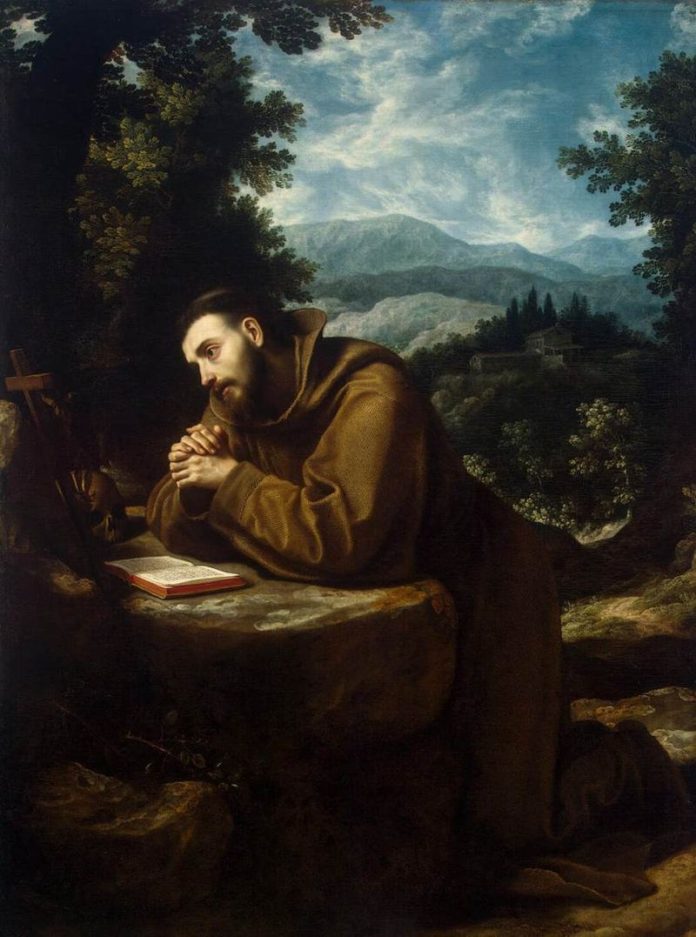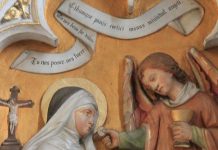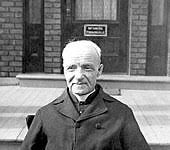(Today, September 17th, marks the 800th anniversary of Saint Francis of Assisi receiving the stigmata of Our Lord. Here are the words of Father Attard, and one may also peruse the reflection by Father Thomas Weinandy in today’s CatholicThing. Editor)
Today, Tuesday 17 September 2024, is the feast of the Stigmata of our Seraphic Father St Francis of Assisi, 800 years when this great event occurred on Mount La Verna.
In his letter marking of St Francis’ reception of the Stigmata, the minister general together with the other ministers of the Order of Friars Minor wrote: The first question we ask ourselves and suggest to you is this: How much time do I devote primarily or even exclusively to prayer, to going on retreat, to separating myself a little from my commitments and ‘normal’ contacts (the mobile phone!) so as to dedicate myself ‘exclusively’ to God? Everyone knows their own honest answer, in the depths of their conscience…
St Francis was able to meet Jesus on Mount La Verna because he devoted himself a long time in prayer and fasting. The question we all need to pose, myself first as a Franciscan Capuchin: How much am I finding time to pray? The text that immediately comes into my mind and heart is that taken from the Ratio Formationis OFM Cap 2019 when it tackles contemplation. The text says in 1.4:
The contemplative gaze of God (Ex 34,6) rests on the poor in heart, the afflicted, the dispossessed, those who hunger and thirst for justice, the merciful, the pure of heart, the peacemakers and those who suffer persecution in the cause of right (Mt 5: 3-10). Contemplation means to desire to see things through the eyes of God, to see what others do not dare to look at (SL. Prol. 4). Whoever listens to God’s voice prepares his ears to hear the cries of the poor. The Capuchin reform was born with a profound desire to return to the hermitages and lonely places, so favourable to an encounter with Christ poor and crucified, where silence is transformed into service and consolation for the victims of the plague, and contemplation becomes compassion (PCO VII 31; Const 15,4; 50,2).
Affective prayer in brotherhood means sharing quality time and space to give thanks together as a fraternity for the gifts we have received (Const 46,6). Prayer is grateful praise born of contemplation, when we discover the goodness of God living in us (ExhP 1-17; PrG 1-11). The practice of contemplation purifies and transforms our images of God until we reach the freely self-giving God (Mt 5: 45), who in turn is the foundation for that gratuity with which we build our fraternal relationships. Without contemplation there is no brotherhood (JöhriPrayer 3) (no.69-70).
It is interesting the immediate connection of prayer with the fruits of prayer, that is love of neighbour, particularly the poorest of the poor. God is always loved, along with His poor, to whom He is united. It is in them that Christ lives and shines. That is why the minister general and the other ministers of the Order of Friar Minors wisely remind us: And let’s not think that Francis went up to La Verna on a wave of mystical enthusiasm, moved by something that happens only to saints … The man who climbed La Verna is a worn-out, suffering Francis, who has experienced difficulties in his relationships with his brothers and is well aware of his own frailties. During his time of retreat, he brings all those experiences and hands them over to the Lord.
Yes, the poor are, first and foremost, found in our fraternities, in our brothers. In his address to the participants in the 86th General Chapter of the Capuchin Friar Minor, given at the Clementine Hall on Saturday 31 August 2024, Pope Francis said: Your Chapter has as its motto: “The Lord gave me brothers” (Test., 14) “to go out into the world” (RB 3:10). These words bring to mind the experience of Saint Francis, and they remind us that your mission, in accordance with his charism, is born in fraternity in order to promote fraternity (RB 3, 10-12; cf. Letter to the Members of the Franciscan Family on the Eighth Centenary of the Approval of the Rule of Saint Francis, 9 November 2023). At its heart, we might say, is a “mystique of collaboration”, thanks to which, in God’s plan, no one can consider himself an island, but each person is related to others, in order to grow in love, to step forward and to make his own uniqueness a gift to his brothers and sisters. One of you who cares for his own uniqueness, but without turning it into a gift to his brothers, has not yet begun to be a Capuchin!
Then, he also told us: At the basis of this charism, however, there is, as we have said, a fundamental condition: to be, in Christ, neighbours to all (cf. Lk 10:25-37), especially the poor, the outcast and the despairing, none excluded. Saint Francis, as we know, came to be universally known as the “man of peace”, beginning with his encounter with lepers, in whose embrace he discovered and accepted his own inner need for healing and in whose presence he came to recognize Christ as his Saviour. Thus forgiven, he became a bearer of forgiveness; thus loved, he became a source of love; thus reconciled, he was able to reconcile many others. He was forgiven, loved, and reconciled and he brings forgiveness, love, and reconciliation. You must be like this, men of love, of forgiveness, of reconciliation. Faith enabled him to be an instrument of peace in the hands of God, and faith, for him as for us, is always vitally linked to closeness to the poor and those in need. Let us never forget this (cf. Evangelii Gaudium, 49).
And the key to all this is, as Pope Francis told us, availability. He said: Fraternity and availability. As Capuchins, you are known for being ready to go where no one else wants to, and that is a very good thing. Indeed, your “method” of openheartedness testifies to everyone that the most important thing in life is charity (cf. 1 Cor 13:13), for which it is always worth dedicating our entire life. In this way, you serve as a sign for the entire Community, which is called to be, always and everywhere, missionary and “outgoing” (cf. Ad Gentes, 2; Evangelii Gaudium, 20). It is an important sign, especially in times like ours, marked by conflicts and prejudice, where indifference and selfishness seem to prevail over openness, respect and sharing, with grave consequences such as the unjust exploitation of the poor and the devastation of the environment. Your readiness to become personally involved with the needs of your brothers and sisters, and to say with humble courage: “Here I am, send me!” (Is 6:8), is a charismatic gift that needs to be cherished and cultivated. Try always to be simple, free and available, ready to leave everything behind (cf. Mk 1:18) and to go wherever the Lord calls you, without seeking recognition or making demands, with open hearts and arms. And this will be your poverty.
Dear St Francis, in your 800th anniversary when you received the Stigmata of Christ Crucified, help us all to live united with Jesus, our families and communities and, in this beautiful communion, inspire us to respond with new ways of serving Jesus by caring for those who are suffering and nursing their deep wounds, which they carry deep into their hearts, by the love Christ of Christ. Amen. St Francis, pray for us.











